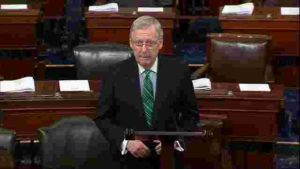Awards ceremonies have the unintended effect of creating disappointment in celebrants who may not be celebrated.
The Oscars always loom large in February. As the cliché goes, it is an American version of a coronation ceremony. We may not have royalty to fawn over, but Hollywood celebrities can be suitable substitutes.
The event is interesting for another reason. Rhetoricians relish finding underlying verbal routines in recurring forms of discourse: certain generic forms of content and presentations that endure. And the annual awards given by the Academy of Motion Picture Arts and Sciences will not disappoint. It seems that this peculiar spectacle has influenced how we stage many other humbler efforts at group recognition. If you are associated with any organization, you know that there will be annual rituals to honor donors, participants and achievers. And in many cases the format may have the same “deep structure” as the annual event held in the Dolby Theater in Hollywood. In a university setting these kinds of celebrations include graduation, departmental awards given to students, awards to faculty and staff, and recognition of athletic prowess. The form also survives at end-of-the-year dinners put together by all kinds of organizations, academic and business units, non-profit groups ready to woo more contributors, and even gatherings of pint-sized grade schoolers. We all have our Oscar moments.
It’s best if you can give award recipients a shiny object. If the organization’s finances are leaner, a computer-generated certificate may have to do.
Any dress-up event includes most of the benchmarks of the form.
True, few of us show up at these events wearing a tuxedo. Indeed, universities have cleverly covered up the shabby clothes of their professors with academic robes. But any dress-up event includes most of the benchmarks of the form: general praise for the work of the organization from the events’ host, anticipation focused on the honorifics that will be issued from the stage at the front of the room, awards introduced with just a hint of suspense, and the promise of witnessing the surprise of individuals as they chosen for special recognition. The form is completed when the recipient stumbles to find dutiful praise for as many as possible.
Becoming an Also-Ran
These faux Oscars are usually defended as morale-boosting exercises. And, to be sure, the award recipients must love them. But there is a downside as well. As Kenneth Burke reminds us, ‘in unification there is also division.’ The problem is that, for every award winner, there is usually a much larger number of possible candidates who will become de-facto also-rans. If a university department singles out a few students at graduation for special honors, I am always reminded that there are many more who can’t help but feel they were unfairly bypassed. Similarly, make one person “employee of the year,” and there are bound to be others in the room who wonder why their contributions were overlooked. The ratio of “winners” to slightly annoyed attenders can easily be 1 to 400: a real rhetorical effect that is often overlooked.
The point is a simple one: awards ceremonies have the unintended effect of creating disappointment in the celebrants who might have been, but were not, celebrated. I know, because I still remember those spring “field days” in grade school where the blue ribbons went to the fastest kids. The rest of us settled for the grey “participation” ribbons given to anyone who showed up.
![]()



